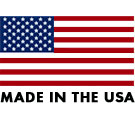When creating electronic equipment with custom silicone rubber keypads, designers don’t always consider what other things people will be doing when using their designs. The topic often doesn’t come up until after the design has been completed. That’s not a problem for SiTech’s engineers. For example, developing advanced diagnostic equipment for vehicles and heavy machinery can save countless hours and headaches for the mechanic. We have seen a growing need among government contractors for ITAR-certified rubber keypads that will withstand contact from the chemicals and petroleum-based compounds used around vehicles and heavy machinery. Part of the nature of cars, trucks and heavy equipment is that they need petroleum-based products to function properly.
Unfortunately, petroleum-based products like lube oil, hydraulic oil, WD-40 and other important chemicals used in motor pools and garages can damage the ITAR certified rubber components when the components are not protected. When employees come in fingertip contact with oils and lubricants before using keypads on diagnostic machinery, the rubber components can discolor, change texture or lose their shape. Exposed to these chemicals often enough, the rubber components will swell, possibly making the unit inoperable. Frequent washing of the unit is not enough. The residue is still there.
One of the chemical coating systems that we have developed at Si-Tech is called Si Coat II. It eliminates this problem. Si Coat II has many practical uses, including coating ITAR-certified rubber keypads. It protects the custom silicone rubber keypads from many different types of chemicals, including petroleum-based chemicals and those containing chlorine, lipids and oxidants. Items like bleach, sulfuric acid and hydrogen peroxide will not damage the surface, helping the machinery live up to its design. As an ITAR-certified company, we can help your designs stay intact even in the garage.





